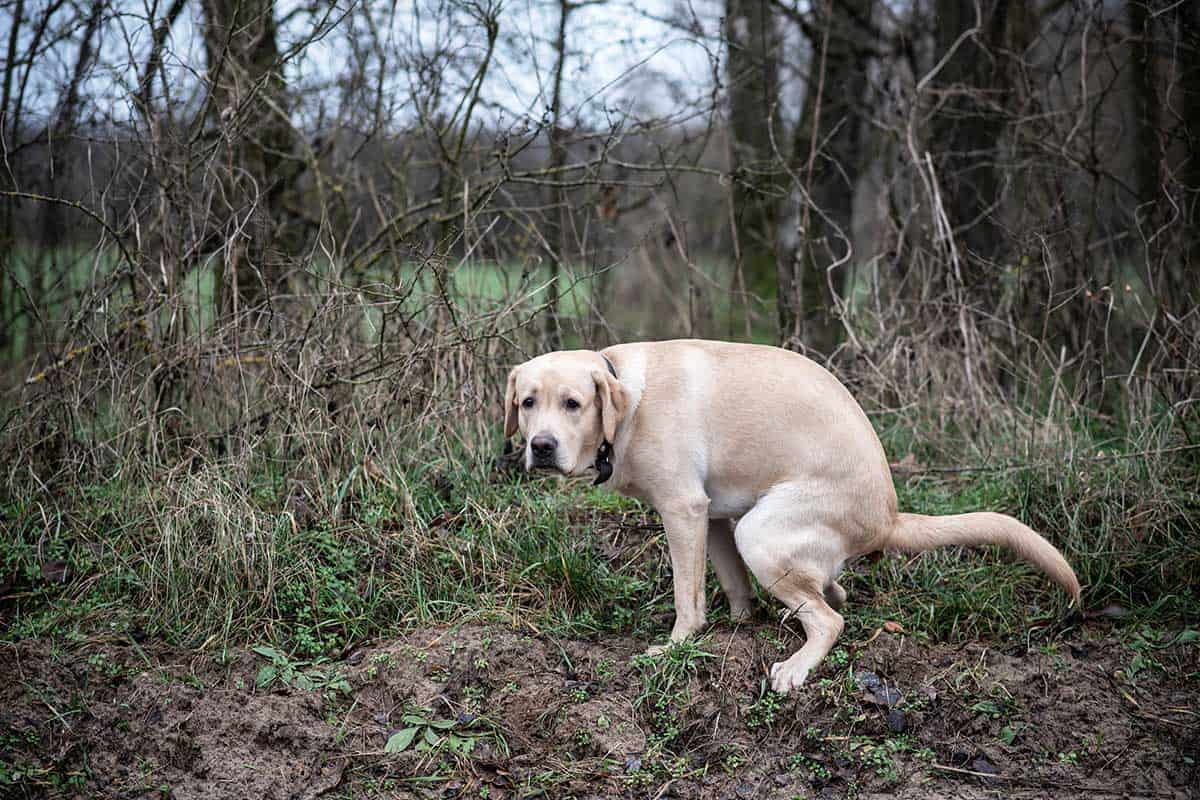Your dog may be pooping frequently due to a change in diet or overfeeding. A sudden increase in bowel movements may indicate an underlying health issue and it’s best to consult a veterinarian for proper diagnosis and treatment.

As dog owners, we are familiar with the regularity of our pet’s toilet habits. However, if your dog is pooping much more than usual, it could signal an issue. While it could be due to a change in diet or overfeeding, other factors such as intestinal parasites, inflammatory bowel disease, or stress could be the underlying cause.
Understanding why your dog is pooping so much is essential for addressing any potential health issues and ensuring their well-being. In this article, we explore the possible reasons behind excessive dog poop and what steps you can take to help your furry friend.

Common Reasons For Excessive Pooping
Excessive pooping in dogs can be due to various reasons. Diet and feeding habits play a significant role in determining the frequency of pooping. A diet high in fiber or low in digestibility can cause more frequent bowel movements. Medical conditions such as gastrointestinal disorders and thyroid problems can also lead to excessive pooping.
Anxiety and stress can also cause bowel issues in dogs. As dogs age, their metabolism slows down, and their digestive system may become less efficient. Regular check-ups and maintenance of a healthy diet can help regulate your dog’s bathroom habits.
Diet And Feeding Habits
Dogs are known to poop frequently, but if your furry friend seems to be doing so excessively, it could be due to their diet and feeding habits. Choosing the right dog food can go a long way in promoting healthy bowel movements.
Experts recommend feeding your dog twice a day and sticking to a consistent feeding schedule. If switching to a new diet, make sure to do so gradually to avoid digestive issues. Look for dog foods that are high in protein and fiber and avoid those with artificial preservatives and fillers.
A balanced diet can help regulate your dog’s bowel movements, leading to happier and healthier pets.
Medical Conditions
Dogs often suffer from bowel movement problems caused by different medical conditions. Parasites, such as roundworms and tapeworms, can cause diarrhea and other digestive issues. Inflammatory bowel disease is a chronic condition that affects the digestive tract and causes abdominal pain, diarrhea, and vomiting.
Other possible conditions include food allergies, irritable bowel syndrome, and pancreatic problems. As a dog owner, it’s important to watch for symptoms such as changes in appetite, vomiting, and diarrhea, and to seek veterinary care as soon as possible. Treatment options may include medication, changes in diet, and lifestyle adjustments.
By being attentive to your pet’s health and allowing immediate treatment, you can help your furry friend live a happy and healthy life.
Anxiety And Stress
Anxiety and stress are common reasons why dogs may poop excessively. Signs that your dog is stressed include decreased appetite, excessive licking, and panting. Anxiety affects bowel movements by causing food to move through the digestive tract too quickly or too slowly.
This can lead to diarrhea or constipation. Solutions for reducing anxiety in your dog include creating a calm environment, providing regular exercise, and using calming aids such as pheromone sprays or thunder shirts. It is important to consult with a veterinarian to rule out any medical causes for your dog’s excessive pooping.
Age
As dogs age, their bowel frequency may increase due to digestive issues. Signs of age-related bowel issues include incontinence and constipation. To keep your senior dog healthy, provide a balanced diet, regular exercise, and frequent bathroom breaks. Knowing your dog’s poop schedule can also help detect any changes or irregularities.
Additionally, consult with your veterinarian about supplements or medications to improve bowel health. With proper care, your dog can have a healthy and regular poop schedule, even in their golden years.
Frequently Asked Questions For Why My Dog Poops So Much
Why Does My Dog Poop So Much?
Dogs may poop more if they eat too much or too quickly or don’t get enough exercise. Parasites, stress, or medical conditions could also increase their bowel movements.
Is It Normal For My Dog To Poop Multiple Times A Day?
Yes, dogs normally defecate one to five times a day, depending on their breed and diet. It may indicate a health issue if they poop more than usual or have diarrhea.
To reduce your dog’s poop frequency, feed them a high-quality diet, provide regular exercise, and ensure good hydration. Regular vet check-ups can also help detect health issues causing bowel movements.
Can Certain Foods Make A Dog Poop More?
Yes, certain foods can make a dog poop more, such as those high in fiber or fat. Human food, bones, and treats may also increase bowel movements or cause diarrhea.
What Could Be The Medical Reasons For Frequent Pooping In Dogs?
Frequent pooping in dogs could be caused by medical conditions such as diarrhea, inflammatory bowel disease, parasites, or food intolerance. Consulting with and getting a proper diagnosis from a vet is recommended.
Conclusion
After exploring the possible reasons why your dog poops so much, it’s safe to say that there isn’t just a single factor at play. From diet to medical issues, various elements can contribute to your dog’s bowel movements. While keeping your dog’s bathroom habits in check is essential, it’s equally important to remember that each dog is different.
What works for one dog may not be the best solution for another. Therefore, it’s always better to consult your vet if you’re concerned about your dog’s health and digestion. As responsible pet owners, we must ensure our furry friends receive the right care and attention to lead happy and healthy lives.
By taking these steps, you can stay vigilant and control your pup’s poops. So, pay attention to their diet, be mindful of any underlying health conditions, and work towards maximizing their overall well-being.












GIPHY App Key not set. Please check settings